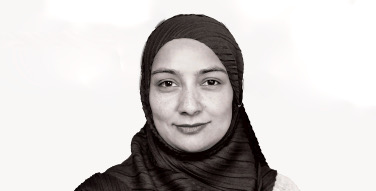Right size implementation to build the case for spread
In Views
Follow this topic
Bookmark
Record learning outcomes
 By Dr Farzana Hussain
By Dr Farzana Hussain
We’re only in week three, but it’s really going well. As with all innovation, there has to be a need for it – and my surgery had a real need for it. As things have started to open up, a lot of people who’ve been waiting for whatever reason – perhaps worried about contacting their GP – have wanted appointments. I've never seen as much demand as I've seen in March and April.
I asked my local pharmacist, Jignesh Patel, what happened to the local minor ailments scheme, and he reminded me about the CPCS. We decided to start small, where we can directly influence things – in my practice. The reception team went to the training. I made sure the pharmacist could book back in if a patient does need medical advice.
It's working. Pharmacists are now doing five or six consultations a day for us – that's nearly a third of a surgery as we do 18 appointments in a clinic. Some days we might have one review to do as a result, most days none at all, but we have an appointment slot for local pharmacists, and if that's not used, we'll book it for something else.
We're going to present the advantages we've found to the other practices in the primary care network (PCN) after we've been going for four weeks. There may be a big push on everything to come to PCNs, but there will be things that have to happen at practice level for the network as a whole to benefit. I'm not underestimating the importance of having a great pharmacist, and the trusting relationship we have.
My PCN is the largest of the 10 PCNs in Newham (London), with seven practices covering 67,000 residents. We're a natural community; we used to work together in a commissioning cluster, but we realised early on that we didn't all know all the pharmacists on our patch. Before we got diverted by the pandemic, I did invite our local pharmacists to an initial meeting, so at least we could put faces to names.
Looking at the challenge of spreading something like the CPCS across the PCN, we probably didn’t start in the right place. Jignesh went to meet the practice managers, who have taken an active role within the PCN with their own meetings over the last year, to talk to them about CPCS. There were a lot of conversations about it among the managers afterwards, but I think innovations like this can be a bit like Russian dolls – you have to find the size that fits.
We decided to start small, where we can directly influence things – in my practice.
Jignesh was actively trying to promote the CPCS for three months and he wasn't getting anywhere, but I suspect that while the practice managers may have discussed it, if it looked like a network initiative, the GPs may not have engaged with it because as far as they are concerned the PCN means Investment and Impact Fund (IIF) targets and directed enhanced services. When they've got their heads down with so many patients to get through, they need to pause for a second.
I think CPCS has to be initiated at the practice rather than network level, because different practices have different ways of working. I'm grateful for the insight. Going forward, as a PCN clinical director, I will be thinking about what needs to be done at practice level that then benefits the network. Practices need to see the CPCS as a normal part of their work, not a network add on.
Our experience also follows the principles of quality improvement. Start small. Think about where the pitfalls are. Think about what you can influence, and while I can't force the whole network to change – practices are fiercely independent – I can influence individual practices facing similar problems to mine, with demand for appointments outstripping our ability to deliver them.
As clinical director, I can say to the network: our patients are benefitting, so we are benefitting. But for that to happen for you, let's make sure our reception teams get the right training, and that we're including and respecting our pharmacists. If the pharmacist decides a patient needs a medical review after all, let's make sure that feedback loop happens on the same day, so they're not left holding that risk.
CPCS is an example of how useful community pharmacists are right now. I need to get patients seen, and this is a gift horse for GPs right now. For me, it's free too. You need to make sure your reception team know what they're doing, that you've got capacity to review anybody who comes back, but why wouldn't you use it?
